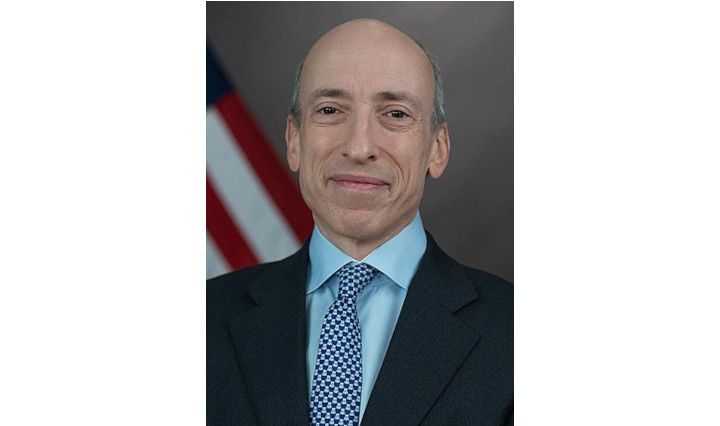SEC Chair Gary Gensler on SEC's new Conflict of Interest Rules: "I am pleased to support this adoption because it helps foster more resilient clearinghouses."

Source: https://www.sec.gov/news/statement/gensler-statement-clearing-agency-111623
Today, the Commission adopted final rules relating to the governance and use of outside service providers by clearinghouses. I am pleased to support this adoption because it helps foster more resilient clearinghouses.
Clearinghouses play a vital role in our capital markets. They facilitate what one might call the market plumbing, that which happens after you enter into a transaction through the time that it settles. Standing in the middle of the securities markets, clearinghouses are the buyer to every seller and the seller to every buyer. Thus, they operate like a utility—and in the words of Congress in the Dodd-Frank Act, “financial market utilities.”
Congress has said that the Commission has an important role relating to clearinghouses. In 1975, Congress granted the SEC authority over securities clearinghouses. In 1986, Congress extended the SEC’s authority to clearinghouses in the Treasury markets. In 2010, Congress granted the SEC authority with respect to clearinghouses in the security-based swap market. It was in those 2010 Dodd-Frank authorities that Congress directed the Commission to address conflicts of interest for clearinghouses in the security-based swap market.
Given the importance of governance to clearinghouse resiliency, in 2012, the Commission first adopted rules to implement general governance requirements for registered clearinghouses. Later in 2016, we adopted rules heightening those governance standards for a subset of clearinghouses considered systemically important market utilities.
Given what the Commission has observed since adopting those rules, today’s rules enhance clearinghouses’ governance and use of outside service providers.
As relates to clearinghouse governance, today’s adoption seeks to enhance standards to achieve several goals: to promote board independence, consider the views of relevant stakeholders, and reduce the potential for conflicts of interest with respect to the board and senior management.
First, the rules set thresholds for the number of independent board members of the clearinghouse. Independent board members are individuals who do not have a material relationship with the clearinghouse. As further detailed in the release, the rules require that the majority of a clearinghouse’s board members must be independent members, or in some cases at least 34 percent. Such independence can help promote the board’s ability to manage risk, address conflicts of interest, and maintain public confidence in the clearinghouse.
Further, the rules set requirements relating to the board’s nominating committee and risk management committee. For instance, the majority of the nominating committee’s membership is required to be independent. In addition, the rules require that the risk management committee members have sufficient expertise.
Second, the rules set requirements for clearinghouses’ consideration of stakeholders’ viewpoints on risk management and operations. This provides the opportunity for market participants to weigh in on that market utility’s risk management activity.
Third, the rules set requirements for clearinghouses relating to conflicts of interest. In particular, the final rules require clearinghouses to adopt policies and procedures to identify and document existing or potential conflicts of interest involving directors or senior managers, as well as to mitigate or eliminate those conflicts of interest.
With respect to outside service providers, the rules set requirements for clearinghouses’ use of service providers for their core services. In essence, this is about making sure that these critical market utilities cannot outsource their obligations in a manner that puts market plumbing at risk. As further detailed in the release, the rules require clearinghouses to establish policies and procedures for the clearinghouses’ use of and relationship with service providers.
Taken together, these final rules help make clearinghouses more resilient. That benefits investors, issuers, and the markets connecting them.
I’d like to thank the members of the SEC staff who worked on these final rules, including:
- Haoxiang Zhu, Andrea Orr, Yue Ding, David Bloom, John Prochilo, Roni Bergoffen, Sharon Park, Jeff Mooney, Matt Lee, Steph Park, Claire Noakes, Jenny Ogasawara, Halley Holliday, Elizabeth Fitzgerald, Moshe Rothman, Kevin Schopp, Aaron Foxman, Jonathan Abraham, Heidi Pilpel, David Liu, Randall Roy, Nina Kostyukovsky, Meredith MacVicar, and Richard Holley in the Division of Trading and Markets;
- Jessica Wachter, Josh Mallet, Andrew Glickman, Juan Echeverri, Marina Martynova, and Samantha Croffie in the Division of Economic and Risk Analysis;
- Megan Barbero, Meridith Mitchell, Robert Teply, Donna Chambers, and Ronesha Butler in the Office of the General Counsel;
- Felicia Kung in the Division of Corporation Finance;
- Melissa Roverts Harke and Jennifer Porter in the Division of Investment Management; and
- Carrie O’Brien in the Division of Examinations.
Wut Mean?:
Gary calls out that these rules address several key aspects:
- Role of Clearinghouses: Clearinghouses are central to the capital markets, acting as intermediaries in transactions. They are considered "financial market utilities" as described in the Dodd-Frank Act.
- Historical Authority: The SEC's authority over clearinghouses has expanded over time, starting in 1975 with securities clearinghouses, extending to Treasury market clearinghouses in 1986, and including security-based swap market clearinghouses in 2010 under the Dodd-Frank Act.
- Previous Governance Rules: The SEC first implemented general governance requirements for registered clearinghouses in 2012, followed by heightened standards in 2016 for those considered systemically important.
- The new rules aim to:
- Increase board independence by setting thresholds for independent board members, who should not have material relationships with the clearinghouse.
- Require a majority of the board, or at least 34 percent in some cases, to be independent.
- Set requirements for the board’s nominating and risk management committees, including a majority of independent members in the nominating committee and ensuring risk management committee members have sufficient expertise.
- Stakeholder Consideration: The rules mandate clearinghouses to consider stakeholders’ viewpoints on risk management and operations, allowing market participants to influence the clearinghouse's risk management activities.
- Conflict of Interest Policies: Clearinghouses must adopt policies to identify, document, and mitigate or eliminate conflicts of interest involving directors or senior managers.
- Use of Outside Service Providers: The rules include requirements for clearinghouses’ use of service providers for core services, ensuring they don’t outsource obligations in ways that risk market operations. Clearinghouses are required to establish policies for their use and relationship with these providers.
What Gary is happy about:

Fact Sheet:


Press Release:
The Securities and Exchange Commission has adopted new rules to improve the governance of all registered clearing agencies by reducing the likelihood that conflicts of interest may influence their boards of directors or equivalent governing bodies.
“I am pleased to support this adoption because it helps foster more resilient clearinghouses,” said SEC Chair Gary Gensler. “Congress has said that the Commission has an important role relating to clearinghouses. This adoption seeks to enhance standards to achieve several goals: promote board independence, consider the views of relevant stakeholders, and reduce the potential for conflicts of interest with respect to the board and senior management. Taken together, these final rules benefit investors, issuers, and the markets connecting them.”
The new rules establish governance requirements regarding board composition, independent directors, nominating committees, and risk management committees. The rules also require new policies and procedures regarding conflicts of interest, management of risks from relationships with service providers for core services, and a board obligation to consider stakeholder viewpoints. The rules are being adopted pursuant to, among other statutory provisions, Section 765 of the Dodd-Frank Act, which specifically directs the Commission to adopt rules to mitigate conflicts of interest for security-based swap clearing agencies.
The rules improve the governance of registered clearing agencies by identifying certain responsibilities of the board, increasing transparency into board governance, and, more generally, improving the alignment of incentives among owners and participants of a registered clearing agency. In support of these objectives, the rules establish new requirements for board and committee composition, independent directors, management of conflicts of interest, and board oversight.
The adopting release has been published on SEC.gov and will be published in the Federal Register. The compliance date is 12 months after publication in the Federal Register, except for the independence requirements for the board and board committees, for which the compliance date is 24 months after publication in the Federal Register.
Wut Mean?:
The SEC has adopted new rules to enhance the governance of all registered clearing agencies. These rules include:
- Board Governance: Requirements for independent directors and specific compositions for the board of directors, nominating committee, and risk management committee.
- Conflict of Interest: Measures to identify, mitigate, or eliminate conflicts of interest among directors or senior managers, along with mandatory documentation of such actions.
- Reporting Policies: Obligations for directors to report conflicts of interest, underpinned by detailed policies and procedures.
- Risk Management: Policies and procedures for managing risks from relationships with service providers delivering core services.
- Stakeholder Engagement: Procedures for the board to actively seek, consider, and document the opinions of participants and other relevant stakeholders.
These rules aim to reduce the potential for conflicts of interest to influence the board of directors or equivalent governing bodies of registered clearing agencies.
Key requirements of the new rules include:
- Independent Directors: A majority of the board must be independent directors, with clear definitions of independence and circumstances that might disqualify a director from being considered independent.
- Committee Requirements: Establishment of a nominating committee, a written evaluation process for board nominees, and detailed requirements for the composition and operation of these committees.
- Risk Management Committee: Establishment and annual re-evaluation of a risk management committee, with defined roles and purposes.
- Conflict of Interest Policies: Comprehensive policies to address conflicts of interest and ensure timely reporting by directors.
- Service Provider Risk Management: Policies for managing risks associated with service providers crucial for clearance, settlement, or other vital business functions.
- Stakeholder Consideration: Procedures for the board to incorporate the views of stakeholders on significant developments in risk management and operations.

TLDRS:
- SEC Chair Gary Gensler on SEC's new Conflict of Interest Rules: "I am pleased to support this adoption because it helps foster more resilient clearinghouses."
- "today’s rules enhance clearinghouses’ governance and use of outside service providers."
- "today’s adoption seeks to enhance standards to achieve several goals: to promote board independence, consider the views of relevant stakeholders, and reduce the potential for conflicts of interest with respect to the board and senior management."
- "Taken together, these final rules help make clearinghouses more resilient. That benefits investors, issuers, and the markets connecting them."



